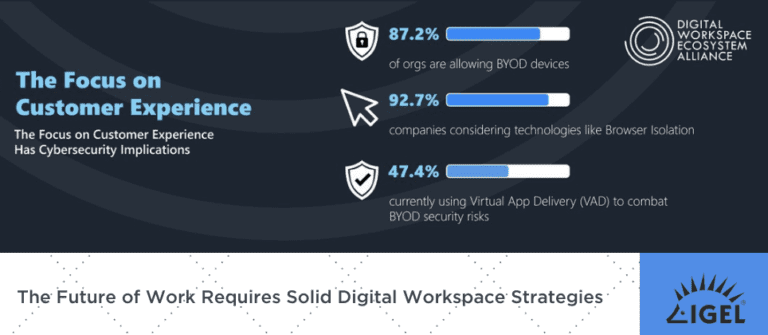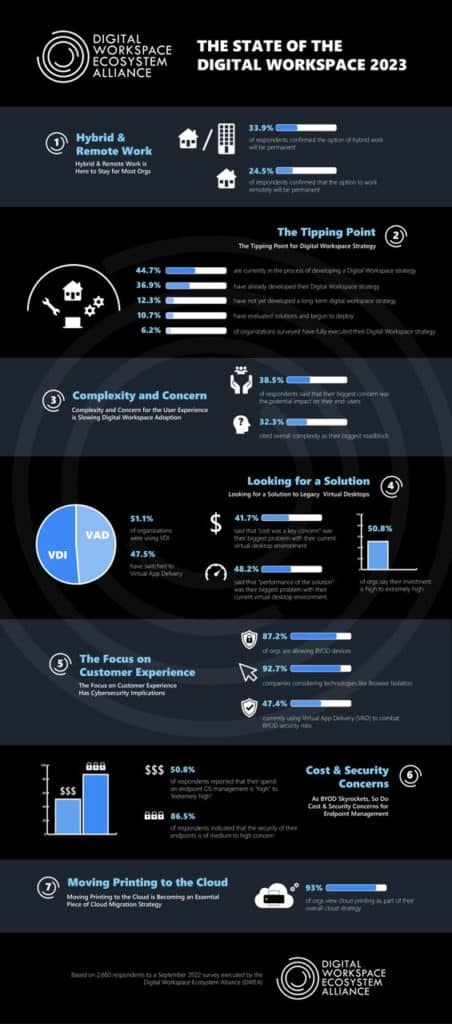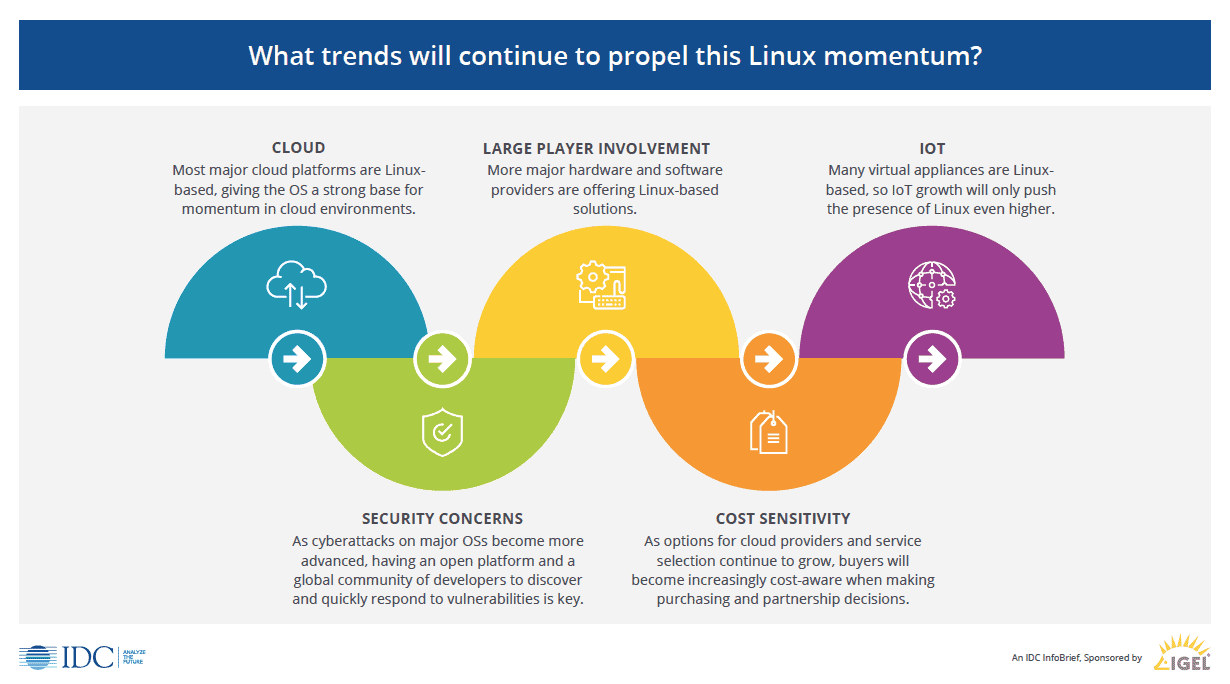IGEL Blog

The Future of Work Requires Solid Digital Workspace Strategies
The Digital Workspace Ecosystem Alliance (DWEA), a non-profit consortium of technology leaders dedicated to providing vendor-neutral tools and resources to help organizations develop their digital workspace strategies, has released the results of its first annual “State of the Digital Workspace 2022” survey, which looks at adoption, benefits, challenges and opportunities that remote, hybrid and on-premises work environments currently face.
During September 2022, more than 2,500 organizations around the world took part in the survey, which was one of the largest digital workspace-focused surveys to date and comes at a pivotal moment when the upheaval we’ve experienced due to the global pandemic. The lessons learned over the last two years are still fresh in our minds and based on the survey, a clearer picture of the path forward is emerging with many organizations eager to solidify the digital workspace strategies that will see them into the future.

Security, Complexity, and Legacy Solutions are Roadblocks to Modernization
It was not surprising to learn that many organizations participating in the DWEA survey agreed that the flexible hybrid workspace is a viable model moving forward, with roughly 6 out of 10 organizations banking on remote/hybrid work for the long term. Yet, these same organizations remain daunted by the task of securing and managing their endpoints. What’s more, according to the survey, many organizations may be prioritizing convenience at the expense of security, even with ransomware and other cybersecurity threats on the rise.
Further, a less than satisfactory experience with legacy technologies including virtual desktop infrastructure (VDI) is preventing and/or delaying some organizations from modernizing their digital workspace deployments. in ways that improve the employee experience while at the same time securing the endpoint. As noted in the survey results, this has put many organizations behind the curve when it comes to deploying more streamlined and cost-effective digital workplace strategies and initiatives. In fact, according to the survey, only 6.2% percent of respondents have fully executed their digital workspace strategy.
IGEL Delivers a Powerful, Easy-to-Manage and Secure Digital Workspace Experience
At IGEL, we believe that protecting the network edge is critically important. We also know that patching and securing endpoints is not easy. It can be time-consuming, resource-intensive, and diminish user productivity.
Yet, in a world where people can work from anywhere, IGEL OS can be an important part of any organization’s digital workspace strategy, helping overcome many of the roadblocks that businesses face on the journey toward modernization. Offering fully managed, secure endpoint access to any digital workspace, IGEL OS gives IT teams strong control and end-users the freedom to work as they wish in a hybrid world.
Further, through IGEL Ready, businesses have access to more than 120 technology partners providing hardware, software, and peripheral solutions that have been verified for use with IGEL OS to deliver a powerful, productive, and secure user experience for digital workspaces within modern workplace environments.
Read State of the Digital Workspace 2022
To read the DWEA’s “State of the Digital Workspace 2022” report, click here.


